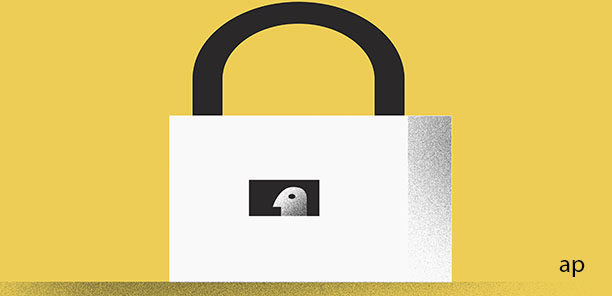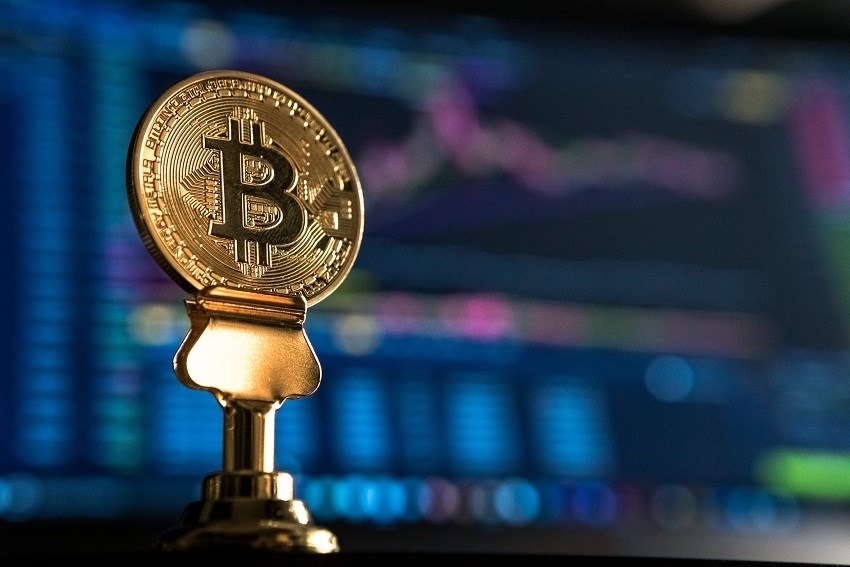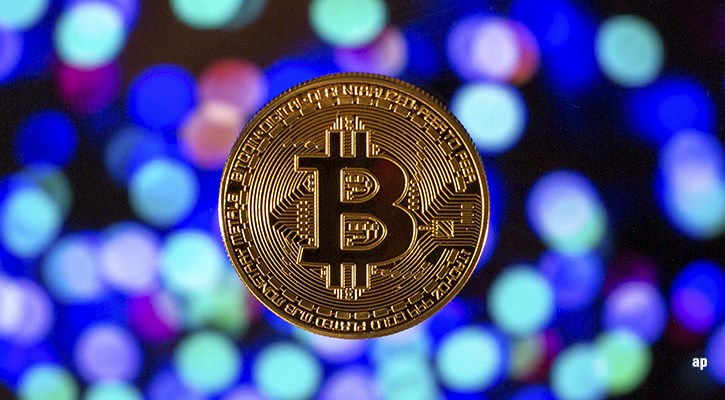
This week on Morningstar.co.uk we're focusing on good money. Hopefully that means giving readers a reasonable idea of what that means, and how investors can put their money to use in a way that profits them, society and the wider world. When trying to define something, though, it often helps to pin down an opposite. So what’s bad money? Playing devil’s advocate, cryptocurrency could be a good example.
A famous comedy sketch (now memified for posterity) has David Mitchell dressed as a Nazi officer with Robert Webb. In a moment of clarity before battle, the protagnist belatedly realises their cause won't be remembered favourably. "We've got skulls on our caps. Are we the baddies?" he asks.
This example is useful in pretty much any scenario involving someone acting in bad faith but without any self-awareness that they’ve done so. Could this be applied to the entire crypto movement, including its leaders and luminaries? They seemed to have strayed far from the original premise of Bitcoin, which emerged from the ashes of the financial crisis of 2008 and promised an alternative to "fiat money" and the limits of the global financial status quo (translation: you can’t trust Wall Street or central banks). If you're not convinced, here are five reasons to rethink your position.
1. It Treats Its Customers Badly
Celsius Network is the most recent example. At time of writing, the users of its crypto lending platform are unable to make withdrawals – and I explain how its business model works in detail here. Its official Twitter account has repeated the mantra in the past few days: "acting in the interest of our community is our top priority". Founder and chief executive Alex Mashinksy repeats the "c" word a lot: "To see you come together is a clear sign our community is the strongest in the world." Replies to this tweet suggest a degree of scepticism about that; at this stage, customers would rather get their holdings than belong to any community. A bank run, even a digital one, is terrible PR. So too is shutting the gates to stop one.
2. It Treats Its Staff Badly
Given Coinbase’s profile as the only listed crypto platform, you’d think that it would be better at handling the optics than Celsius. A blockbuster float in 2021 was great PR for the company, whose shares briefly soared. Now in 2022 Coinbase has to face up to corporate reality and deal with layoffs. Very few firms can deal with mass redundancies gracefully and to everybody’s satisfaction (especially those being sacked). Coinbase effectively admitted it had hired too many people and paid them too much.
Employees were told via a staff email if they were facing the axe – but also shut out of the Coinbase trading platform with immediate effect. "It was unfortunately the only practical choice, to ensure not even a single person made a rash decision that harmed the business or themselves," said Coinbase chief executive and co-founder Brian Armstrong. In the interest of balance, Coinbase is offering severance packages above the minimum statutory level, alongside counselling to address what can only be described as a traumatic experience. And Armstrong should be praised for his plain language in communicating the decision.
3. It Treats the Environment Badly
Soaring prices added a feverish aspect to the activities of crypto miners. Bitcoin sucks up 132.48 terawatt-hours (TWh) of energy annually, the University of Cambridge says, bigger than some countries’ energy demands. The industry has committed to carbon neutrality by the end of this decade, but from perspective of the "E" of ESG, this is a fail.
4. It’s Used by Bad Actors
Cryptocurrency's association with rogue regimes from North Korea to Venezuela has plagued it even as it hurtled towards mainstream acceptance. Still, rising prices meant speculators were happy to turn a blind eye to the bad actors and keeping on HODL-ing. With crushing inevitability, Russia is now mulling accepting Bitcoin as payment for oil and gas, which is also being used by some sanctioned individuals to transfer and move their assets anonymously.
You could argue that this is what Bitcoin is for – but sanctions busting was probably not what its founding members intended. Even before the invasion, ordinary Russians embraced Bitcoin more enthusiastically than those in the West; given the toxicity of the rouble, perhaps in retrospect this was a wise decision.
5. It Fails the Transparency Test
Oversight, data and transparency are key tenets of the ESG movement. While there are elements that can be improved in data collection and reporting (my colleague Sunniva Kolostyak has looked at this in relation to DEI) the direction of travel is positive. You need trust in any financial system and you need clear information – and some of it involves a little suspension of disbelief (the £100 you put in the bank is not kept safely in a vault until you want it back).
But nothing is what it seems in the crypto world: "safe" stablecoins aren’t safe or stable, your money is not yours, and the community you thought you belonged to was as fragile and dog-eat-dog as the real world. Satoshi Nakamoto’s original thesis on Bitcoin described the "inherent weakness of the trust-based system". Is the inherent weakness of the new financial order being exposed now too? It looks like it.
The writer owns no cryptocurrencies or shares in platforms, and will have fun staying poor












:quality(80)/cloudfront-us-east-1.images.arcpublishing.com/morningstar/MNPB4CP64NCNLA3MTELE3ISLRY.jpg)
















